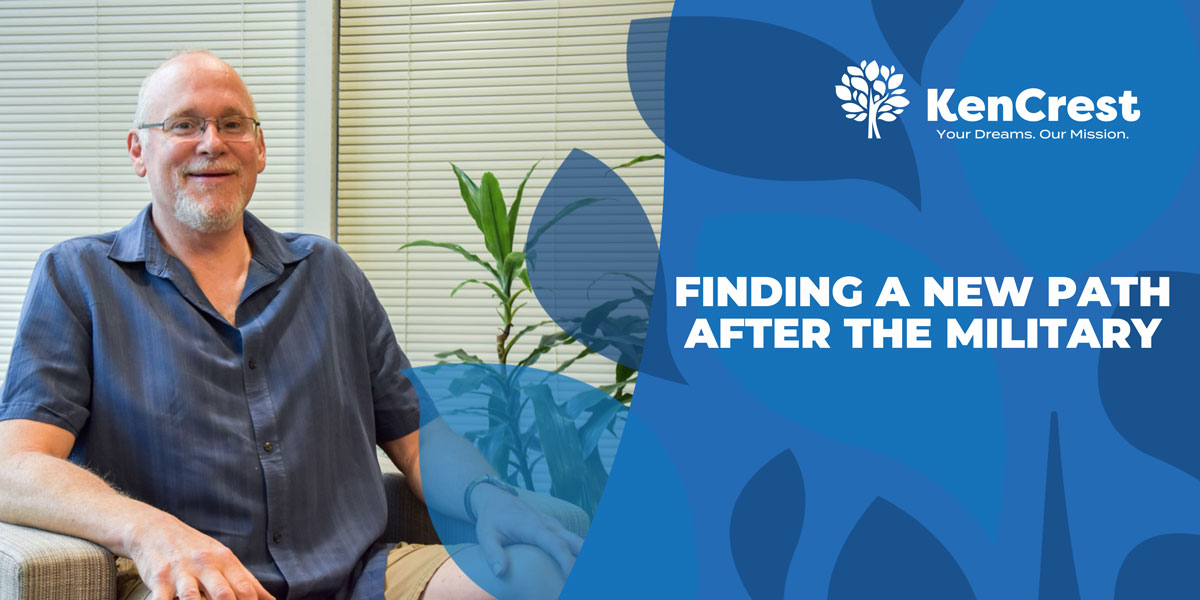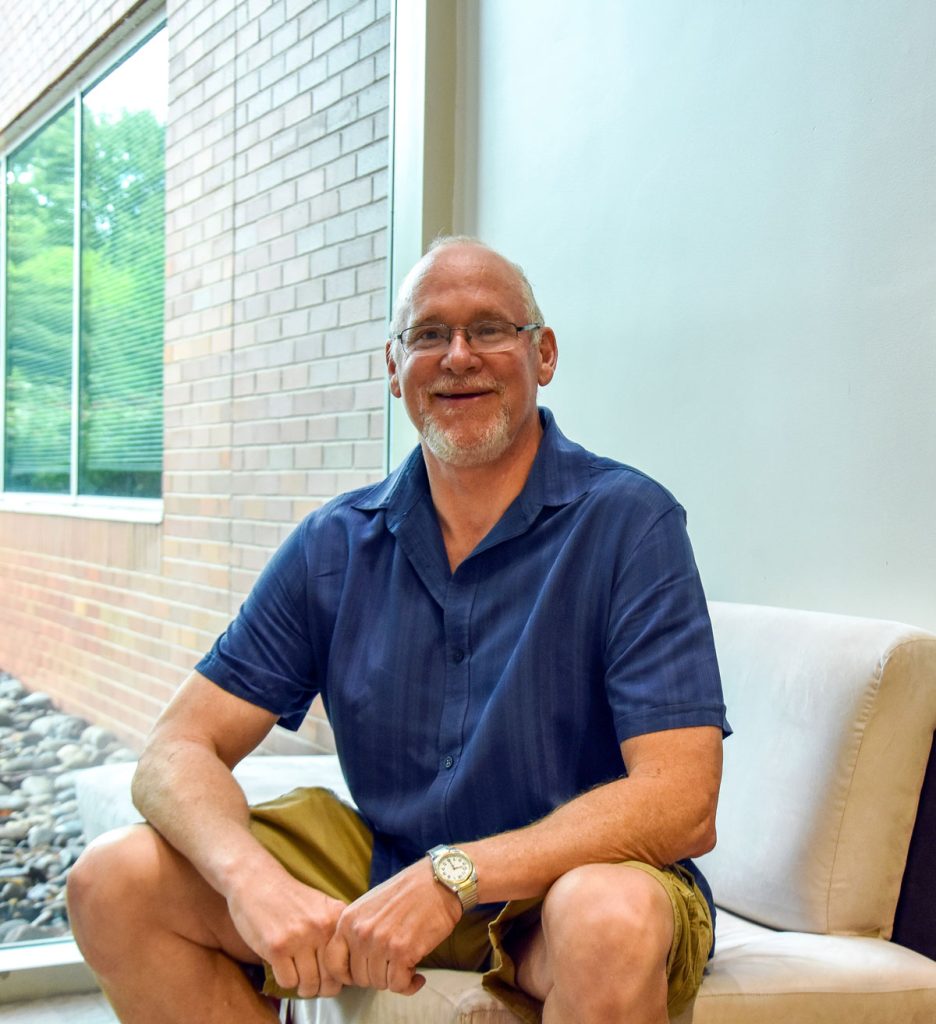Finding a New Path After the Navy

A service-related head injury led this Navy Veteran to civilian life and the chance to discover his passion: helping people with disabilities.
By Sydney Kerelo
After a four-year career in the United States Armed Forces Navy, Veteran Doug Jones discovered a new calling, working with individuals with intellectual or developmental disabilities.
Jones joined the Navy fresh out of high school in 1984 with a spark in his eye and a dream of adventure. His first deployment took him through the Pacific Ocean, where he docked in Guam, the Philippines, and Korea. While his second deployment brought him a little closer to home, stationing him on a ship in California, on the West Coast. However, Jones suffered an accident on the boat that severely injured him, leaving him without hearing in his left ear.
As he recovered in a Department of Veterans Administration (VA) hospital, Jones would walk along the corridors, stop into different rooms, and chat with other patients, nurses, doctors, and medical staff, searching for meaningful connections.
Two months passed before Jones was discharged, but he wasn’t allowed back on the boat. He was given shore duty, a position Jones didn’t enjoy, and paid even less. Eventually, Jones left the military and joined his stepfather in real estate, where he sold houses on the west coast for years while raising his son. But he quickly realized the fast-paced real estate setting wasn’t for him, so he searched for a new path.

Jones knew he wanted to work with people with disabilities from the start but initially wanted to be in a VA health program. But before he got the chance, Manor Care in Pottstown recruited him, and he worked with people with brain injuries or disorders, including a gentleman with Alzheimer’s. This fellow would follow Jones around the hospital, just chatting about his day, and Jones loved it, but it didn’t feel like enough.
Until one day, when a client of his spoke of KenCrest’s day program—a centralized location that encouraged the people we support to come together and connect through fun activities.
But within a few years of Jones starting at KenCrest in 2016, COVID shut down all-day programs, and he transitioned to a Direct Support Professional (DSP) worker at KenCrest’s Welsh group home.
“Ronnie is the first person I ever met when I came to KenCrest,” says Jones about one of the people he supported at the Welsh home. “I was being interviewed at Robinson Street, and he approached me and asked, ‘Do you have a radio?’ (Which, if you know Ronnie, is his favorite topic of conversation) and I just laughed; I thought, this is perfect for me.”
RELATED: KenCrest Helps People With An IDD Find Their Dream Careers
Little did he know that shortly after that first encounter, he and Ronnie would become close friends while Jones worked at his group home.
Recently, however, Jones made another career change; he is now a Community Connection Coach, working with a handful of individuals KenCrest supports one-on-one. His new role allows him to take the people he supports into the community to do activities that are fun and meaningful to them.

Now, he supports three individuals, John, Kurt, and Scott, two of whom are roommates. Jones initially supported John solely, taking him mini-golfing or on long hikes. But as the fun progressed, his roommate became intrigued.
“I grew up on a farm, so I’m outside most of the time, and when I was assigned John, I learned that he would play on the swings but wouldn’t do much else,” says Jones. “So, when I got him, I tried to do different activities with him. We tried golfing, but it didn’t work out; most things we tried didn’t work. But he has sensory-seeking behaviors and loves touching stuff, so that I would start with small hikes, and he loved it. Now we go on six-mile hikes, and he stands behind me, walking along singing the whole time and touching stuff like a tree or a trail sign.”
John’s roommate Kurt saw all the different activities Jones and him were doing and wanted to join in. Now, John and Kurt enjoy outdoor activities; they even took a trip to Dorney Park together and are learning to play baseball, thanks to Jones.
“It’s the happiest I’ve ever been. The hours are great, and I get to do something meaningful. I always tell my girlfriend, do you believe I’m getting paid to do this?” laughs Jones heartily.
